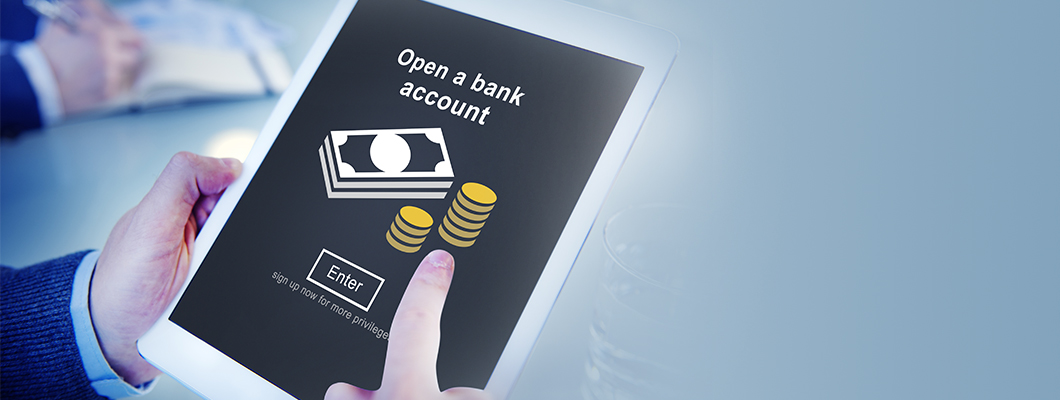Whatever You Need to Know Before Opening a Savings Account: Essential Insights
Opening up a checking account is a significant monetary decision that needs cautious factor to consider of numerous aspects. Recognizing the various sorts of accounts, such as inspecting and cost savings, is only the start. Prospective account holders have to also weigh the significance of costs, access, and the bank's consumer service online reputation. Being prepared with the needed paperwork can help with a smooth account opening experience. As you take into consideration these elements, what various other crucial understandings might influence your choice of financial institution?
Kinds of Bank Accounts
When considering the diverse landscape of financial services, what kinds of checking account are available to meet numerous needs? The main classifications of financial institution accounts consist of checking accounts, financial savings accounts, cash market accounts, and certifications of down payment (CDs)
Inspecting accounts are created for daily transactions, providing simple accessibility to funds by means of debit cards, checks, and digital transfers. They normally have lower rates of interest however supply essential features like overdraft defense and online financial.
Savings accounts, on the other hand, concentrate on accumulating passion in time. These accounts motivate saving by supplying greater rate of interest prices contrasted to inspecting accounts, albeit with limited purchase capacities.
Money market accounts combine attributes of both checking and financial savings accounts. They typically give greater rates of interest and enable a restricted number of checks or transactions every month, making them ideal for those seeking both liquidity and passion profits.
Deposit slips (CDs) require transferring funds for a set term, offering greater rate of interest in exchange for securing funds up until maturation. Each account type offers distinct monetary objectives, enabling individuals to tailor their banking experience to their specific requirements.
Variables to Take Into Consideration
Selecting the ideal bank account includes cautious consideration of numerous elements that straighten with specific economic objectives and lifestyle needs. Evaluate your banking habits. If you often make purchases, consider an account that provides unlimited withdrawals and deposits without limitations. Conversely, if you preserve a higher equilibrium, a high-yield interest-bearing account may be a lot more valuable.
In addition, evaluate the ease of access of the bank's solutions. Look for institutions with a robust online financial system and a network of ATMs to make sure comfort. The physical area of branches might also be necessary for those who like in-person communications.
Another vital element is the kind of solutions used, such as mobile financial, budgeting tools, and financial advisory solutions. These features can greatly enhance your banking experience and assistance in managing your funds successfully.

Understanding Fees and Charges
Understanding the charges and charges related to a savings account is essential for maintaining your financial wellness. Financial institutions usually enforce numerous charges that can significantly influence your overall account balance. These fees might consist of monthly maintenance charges, over-limit charges, ATM withdrawal fees, and charges for not enough funds.
Regular monthly upkeep charges prevail and can usually be avoided by conference details standards, such as establishing or keeping a minimal balance up straight down payments. Over-limit fees take place when you take out more money than your account holds, causing penalties that can have a peek at these guys accumulate promptly. It's vital to comprehend exactly how your financial institution computes these fees and the scenarios under which they use.
Additionally, know atm machine withdrawal costs, particularly if you regularly use equipments outside your bank's network. These fees can add up, particularly if you need to accessibility cash money frequently. Finally, some financial institutions may bill costs for added services, such as paper statements or cable transfers.
Prior to opening up an account, thoroughly examine the charge routine offered by the bank to ensure you pick an account that straightens with your economic demands and routines. Being informed about possible charges can assist you prevent unneeded expenses and optimize your financial experience.
Required Documentation
Opening a checking account calls for details documentation to verify your identity and develop your monetary profile. The precise requirements may vary by bank and account kind, however commonly, you will certainly need to give a government-issued picture ID, such as a copyright or driver's certificate. This ID serves to validate your identification and age, as a lot of financial institutions call for account owners to be at the very least 18 years of ages.
Along with identification, you will certainly usually need evidence of address, which can be shown with an energy bill, lease arrangement, or bank declaration that includes your name and current address. Some financial institutions may likewise need your Social Security number or Individual Taxpayer Identification Number for tax coverage purposes.
If you are opening up a joint account, all candidates have to give their paperwork (bank account opening). In addition, think about having first down payment funds prepared, as numerous banks need a minimal equilibrium to turn on the account

Tips for Picking a Bank
Choosing the ideal bank is an essential action in handling your finances properly. When evaluating prospective financial institutions, beginning by considering their charges. Analyze account upkeep costs, deal charges, and ATM withdrawal fees, as these can dramatically influence your savings over time.
Following, assess the financial institution's accessibility (bank account opening). Figure out if the financial institution has a convenient network of Branches and atm machines, and consider the accessibility of online and mobile financial services. An easy to use electronic system can enhance your banking experience
Furthermore, check out the rate of interest offered on cost savings accounts and fundings. over at this website A bank that supplies competitive rates can aid you optimize your earnings and reduce borrowing costs. Customer care is one more critical variable; choose a bank known for receptive and helpful assistance, whether in-person, over the phone, or online.
Finally, consider your details demands, such as whether you need services like investment choices or organization accounts. By extensively looking into and contrasting your alternatives, you can select a bank that aligns with your financial objectives and way of life, guaranteeing a valuable and smooth banking experience.
Conclusion
In verdict, understanding the various types of bank accounts and their particular functions is crucial for making informed financial decisions. Additionally, being mindful of needed documents will help with a smoother account opening procedure.
Potential account holders should additionally evaluate the significance of charges, ease of access, and the financial institution's consumer service track record.Picking the best bank account involves careful consideration of numerous variables that straighten with private monetary goals and lifestyle demands. Taking these aspects into account will aid you pick the financial institution account that finest fits your requirements.
Recognizing the charges and costs associated with a bank account is critical for keeping your monetary wellness. Financial institutions commonly impose numerous charges that can substantially impact your general account equilibrium.
Comments on “Bank Account Opening Process: Everything You Need to Know Before You Apply”